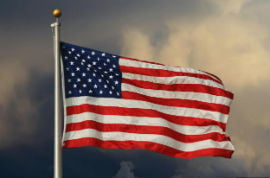-
chevron_right
Bulgaria Asks United States to Help Shut Down Torrent Tracker Zamunda
Ernesto Van der Sar · news.movim.eu / TorrentFreak · Friday, 19 February, 2021 - 21:25 · 3 minutes
 The US Trade Representative (USTR) placed Bulgaria on the ‘Special 301 Watch List’ between 2013 until 2017, because its copyright policies and enforcement were reportedly lagging behind.
The US Trade Representative (USTR) placed Bulgaria on the ‘Special 301 Watch List’ between 2013 until 2017, because its copyright policies and enforcement were reportedly lagging behind.
The USTR uses this annual report to motivate foreign countries to take action, which can often pay off.
This also appears to be the case in Bulgaria, where law enforcement agencies have actively pursued various piracy cases in recent years. This hasn’t gone unnoticed by the USTR, which removed Bulgaria from its watch list in 2018, leading to both countries sharing their progress and goals ever since.
For example, last year Bulgaria mentioned that it planned to criminally prosecute torrent tracker Zamunda.net , the country’s most-visited pirate site. In addition, criminal prosecutions of other high-profile torrent sites such as ArenaBG.com, Zelka.org and RARBG.to were in the works as well.
When we highlighted these developments last year they were still in the planning phase. However, a new report sent by Bulgarian authorities to the USTR this week shows that progress has been made.
The report notes that the various recommendations from the US Government are being taken very seriously. This includes the explicit request to fight online piracy and take local torrent trackers offline.
Bulgaria writes that, last summer, Sofia Regional Prosecutor’s Office started four separate pre-trial proceedings against Zamunda.net, ArenaBG.com, Zelka.org and RARBG.to. All sites stand accused of criminal copyright infringement.
Last November the matter was discussed on the highest diplomatic level. In a telephone call, a high-level representative from the US State Department informed Bulgaria’s Ambassador to the United States that prosecuting Zamunda.net and Arenabg remains a key issue.
In the progress report, Bulgaria stresses that it takes these concerns very seriously. It mentions the pre-trial proceedings that were launched, and highlights several steps that have been taken thus far.
“Numerous investigative actions were carried out – interrogation of witnesses, website inspections, preparing and sending requests for legal aid to the competent authorities in the USA, Australia, Sweden, Switzerland, Bosnia and Herzegovina, with a request for information and termination of users’ access to the specified sites,” the report reads.
Despite these actions, Zamunda, ArenaBG, and the other torrent sites remain online today. However, law enforcement hasn’t given up.
In a separate message, Bulgaria’s Government notes that US law enforcement also has a role to play. Apparently, Zamunda.net has servers located in the US, and the Department of Justice was recently asked to help shut these down.
“[A]n important event we need to highlight is the submission on January 27th, 2021, of a Request for Mutual Legal Assistance from the Bulgarian Supreme Prosecutor Office to the DOJ for the seizure of illicit servers hosting vast amounts of entertainment and software content with breached IP on US territory, operated by the Bulgarian piracy torrent tracker entity Zamunda.
“The act follows the execution of a mutually agreed Action plan for the improvement of IP enforcement on Bulgarian territory presented by our partners at the USTR,” a representative from the Bulgarian Government adds.
While it’s uncertain if the prosecutions will turn out to be successful, Bulgaria hopes that these efforts will prove sufficient to keep the country off the ‘Special 301 Watch List’ in the coming year.
All in all, it is fascinating to see how these law enforcement actions are orchestrated at the highest political levels. This is not new by any means, however. We previously uncovered how similar tactics triggered Sweden’s criminal prosecution of The Pirate Bay.
—
A copy of the status report the Government of Bulgaria sent to the US Trade Representative is available here (pdf)
From: TF , for the latest news on copyright battles, piracy and more.
 Every year copyright holder groups get the chance to share their list of “notorious” piracy actors to the
Every year copyright holder groups get the chance to share their list of “notorious” piracy actors to the 
